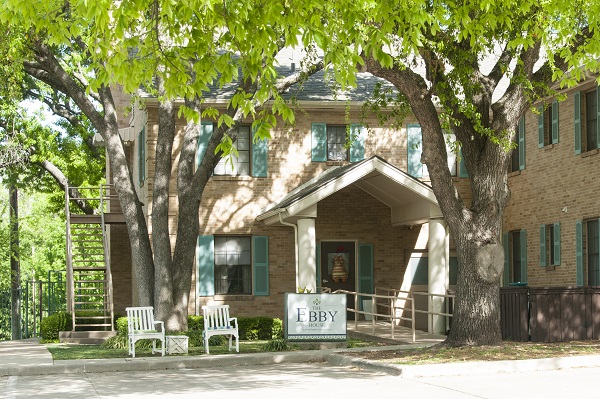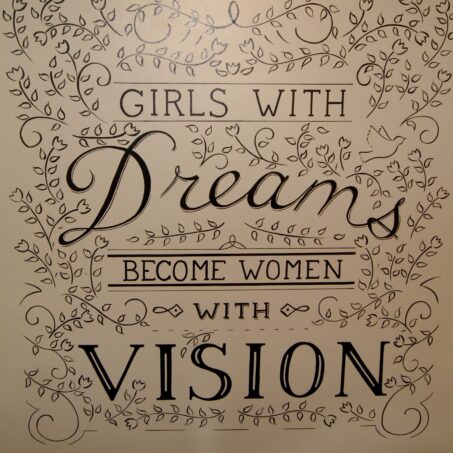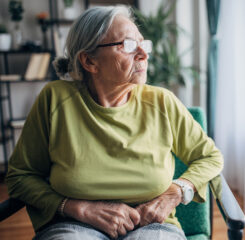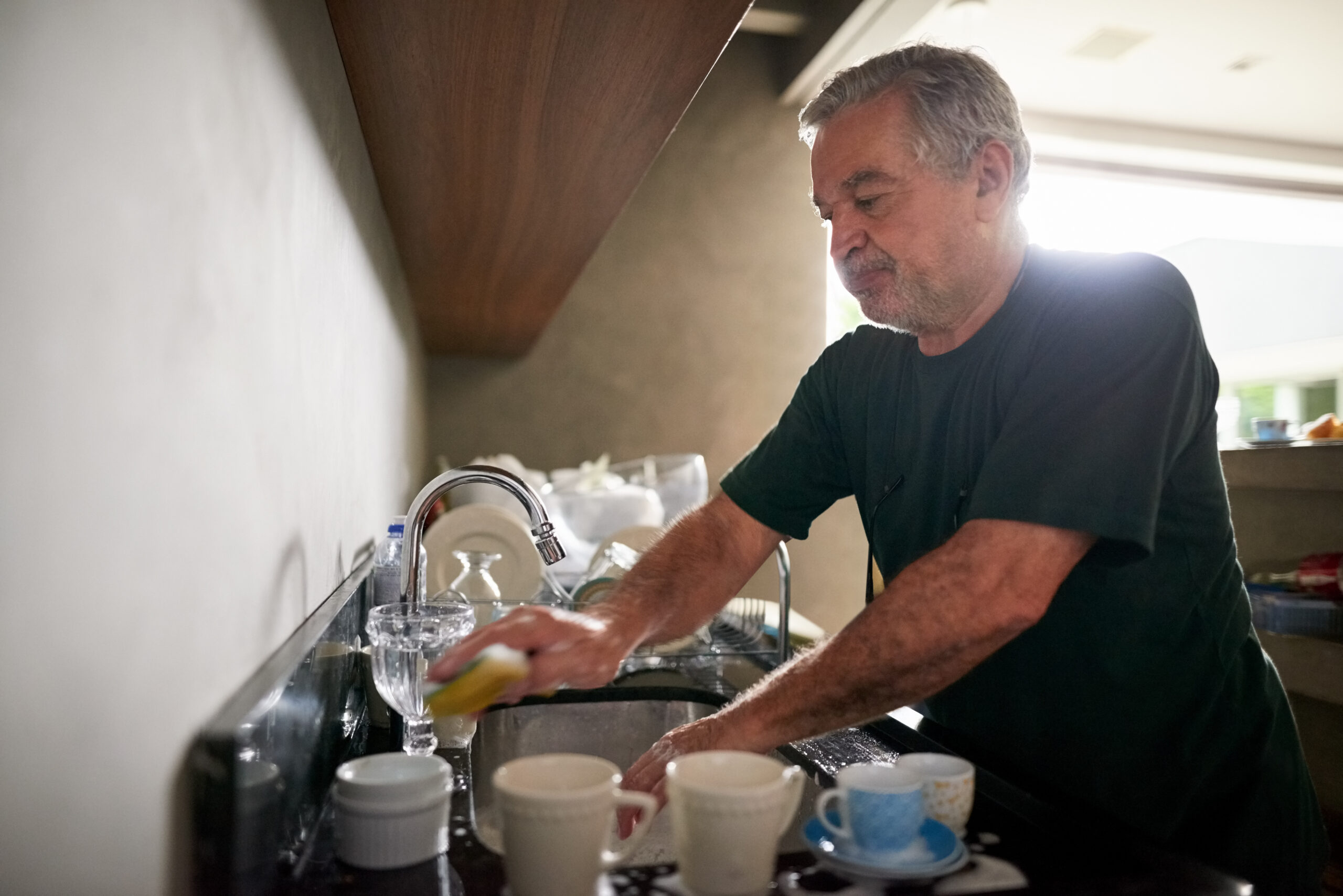Mission and Connection: Serving At-Risk Youth and Older Adults Too
One way of looking at nonprofit and mission-driven organizations is that they do the work that would not otherwise be done–including difficult, time-consuming, patience-testing work with people who need many levels of support.
One such provider, Juliette Fowler Communities, Dallas, TX, is not only a full-continuum senior living provider; it also serves young people in great need through its growing youth and family services. Fowler provides family counseling, recruitment and training of foster parents, and support for foster families–and it has one foster home on its campus. Its Ebby House (profiled in this LeadingAge article) is an on-campus home for young women aged 18-24 who have experienced abuse, neglect, abandonment, or foster care. Fowler’s program provides health care, education, career guidance, job training, and more–including a chance to build relationships with the older adults residing on the campus.

in The Ebby House, a home where young women who have suffered abuse or
neglect, or lived in foster care, can transition into successful adulthood.
Fowler’s newest addition to this service mix is its Youth Support Center, designed to serve at-risk children and youth, including those rescued from human trafficking and other abusive situations, addiction, or homelessness. In partnership with other professional human-services agencies, the Youth Support Center was designed to be a one-stop shop for counseling, coaching, mentoring, and life skills training for children and youth, aged 12-24, recovering from traumatic life experiences.
The Youth Support Center was developed with the help of a program from the Texas Governor’s office, designed to help at-risk youth, especially those who had fallen prey to sex trafficking. A building next to the Ebby House was remodeled to accommodate a “drop-in center” that clients could visit six days a week.
That vision, however, was threatened by two unforeseen crises. First was the COVID-19 pandemic. The Governor’s program was funded by court fees and fines–which were reduced dramatically during the pandemic, thus reducing the funds available. The second crisis dropped out of thin air–namely, the February 2021 “Snowmaggedon” that brought record snow, ice, and freezing temperatures to Texas. President and CEO Nicole Gann tells harrowing stories of losing power for days. While Gann and her staff were busy creating a plan for a potential evacuation of residents, the sprinkler pipes in the new Youth Center froze and then exploded, flooding the building and destroying all of the construction work that had been done. (The facade of the building is all that remains standing for now.)
Fowler Communities adapted, moving the Youth Center into the Ebby House, and doing private fundraising to keep the Youth Center going.
The Center served 26 youths in its first year, and has already served more than 50 in the first quarter of 2022. It works with a number of area agencies who refer clients: Traffick911, Dallas Children’s Advocacy Center, Together We Thrive, Genesis Women’s Shelter, and more. The Center offers food assistance, counseling, coaching and mentoring, life skills classes, and confidential support and referrals.
The Center works closely with Cornerstone Crossroads Academy, a “second-chance” charter high school that enrolls at-risk youth, says Lisa Mumford, Juliette Fowler’s director of children, youth and family services. “Cornerstone understands the significance of [students] who are 20 but still functioning at a sophomore level of high school,” she says. “They have a robust staff of social workers and very well-trained advisors that work with the youth who are behind but want to catch up.”
The first contact with the Youth Center is usually by phone, according to Mumford: “That’s our chance to have coaches immediately get involved; the coach is responsible for a brief intake to learn their immediate needs. The agencies already working in this area refer them to us, so a certain amount of intake has already happened. If they have been rescued from a situation, the crisis part may be somewhat settled already. We [handle] the longer-term and sustainable plans.”
Because some at-risk youths may be reluctant to, as Mumford says, “get involved with yet another agency or yet another person that makes promises,” coaches may speak with them several times by phone before they come to the Center.
“[With] so many of these youth, because of their trauma-based background and their reluctance to share all the details of their life and living, it takes time,” Mumford says. “And that time is what we hope to give them. There is no rush; we understand that it’s going to be at their pace.” The Center tries to have each client set goals for the first 90 days, though they can often turn into six-month goals. All newcomers take the Casey Life Skills Assessment to identify a starting point. The Center holds weekly life skills classes covering financial, planning, and interpersonal skills, tailored to each client.
The Center follows a trauma-informed care model and contracts with licensed professionals as coaches and counselors. “Those individuals that desire to work professionally with this population, whether it’s sex-trafficked or just trauma-based, receive an education in trauma-informed care,” says Mumford. “We all probably have experienced trauma. But the level at which these children and youth come to us, or have been subjected to, is something beyond. It’s the abandonment, the isolation, the physical abuse, the sexual abuse, the mental abuse.”
Some of the children and youth need and want to remain associated with their families. “We have some youth here that are responsible for their siblings and still living at home,” Mumford says. “So we incorporate that family aspect into their care as well, with no judgment.”
Fowler has created an Intergenerational Task Force to help integrate the wisdom of the older adults living at Fowler. “The intergenerational aspect increases everyone’s thriving capacity–the wisdom and the stories of the elders along with the liveliness of the youth,” says Mumford. With COVID restrictions easing, it’s easier for everyone to get together. Fowler residents are involved in tutoring, pizza or pool parties, and even drum circles with the Youth Center clients and the Ebby House residents. A “trauma-informed yoga” class is being planned for this fall.
“The Power of Connection”
Gann believes that an important component of the nonprofit and mission-driven difference is what she calls “the power of connection.”
“I think this is a distinguishing factor to us. We are focused on creating that connection as the best pathway to healing, whatever you’re healing from. But if you don’t have that connection, it’s really hard to build trust. And you can see how much we throw at it to create that stickiness, that belonging. It’s designed to create healthy connections and attachments for these children and youth.”
In working with young people, Gann says, she has learned a new way of seeing her work with older adults: “We see the little things that impact these children or these young women, and it reminds us that we’ve got to get out of our belief systems about our elders, because those little things can transform them too. They still want to have awe and wonder, they still want to learn and crave some of those same things, so there’s less difference between us than I would have thought before.”
Do you have a story to tell? The LeadingAge Story Collector, powered by Greystone, makes it easy to submit yours. Try it now.

Most Recommended
July 01, 2025
 Budget Reconciliation 2025
Budget Reconciliation 2025
June 27, 2025
Pathways for Foreign-Born Workers
Recently Added
July 01, 2025



